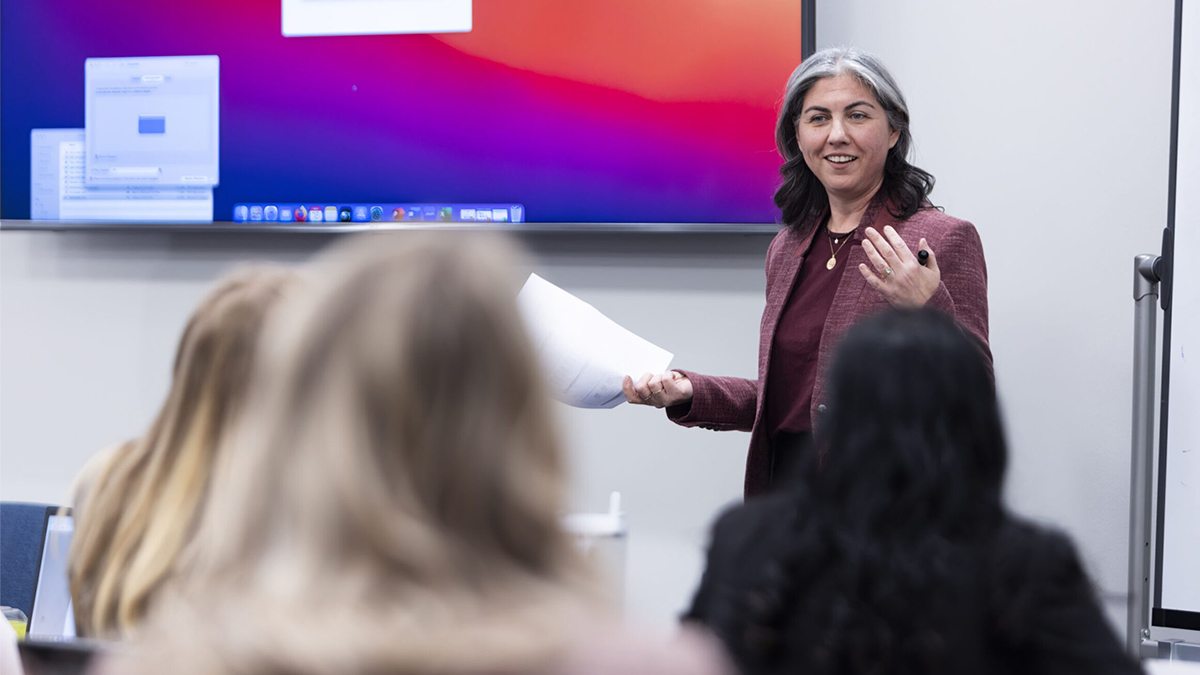Business professor turns studies into strategy
Isin Guler unravels how venture capitalists, pharma companies and prison systems manage innovation.

Isin Guler has embarked on an unconventional path for a new line of research: exploring entrepreneurship as a solution to complex issues plaguing the prison system.
While many prisons emphasize punishment over rehabilitation, Guler sees entrepreneurship as a way to break the cycle of recidivism and offer a fresh start to released inmates.
“The rates of reoffending are exceptionally high: one in three inmates return to prison within three years of being released. Part of the reason is because it’s hard to get gainful employment; there is a lot of stigma,” says Guler, professor of strategy and entrepreneurship and Sarah Graham Kenan Scholar at UNC Kenan-Flagler Business School.
Research that she conducted with doctoral student Robert Hill (Ph.D. ’22) into the Texas Prison Entrepreneurship Program revealed that participants showed significantly lower rates of recidivism – almost one-third the rate of nonparticipants.
Armed with these insights, Guler recommended interventions aimed at enhancing the program’s impact, including testimonials to motivate prisoners and reduce dropout rates. “I’m excited by the application of ideas in practice and making a real-world impact,” she says.
Managing innovation
Guler’s central research interest lies in unraveling how firms manage innovation — a highly uncertain process with often huge investments on the line. “As an established firm, you need reliable profitability and growth, but you need to balance that against the need to take risks and innovate,” she says.
Her research of the venture capital industry has shown that VC firms often do not stop investments in portfolio firms, tying up capital and resources. In the current economic environment, they need to enhance their “termination capability” to optimize resource allocation, she says. “You need to identify which investments won’t pan out and make the tough call that you won’t go forward with them.”
Guler draws parallels between VC and pharmaceutical companies, both managing portfolios and aiming to uncover the next groundbreaking discovery.
“Pharma companies that were more proactive in pruning their drug development portfolios were able to cultivate higher quality inventions later on,” she says. “We tied this to the idea of learning from failures and building upon them.”
Leveraging research into strategy
Guler’s commitment to research-driven impact extends to her leadership of UNC Kenan-Flagler’s doctoral program in strategy. With a deliberate focus on close student-faculty collaboration, Guler emphasizes a developmental approach. “We work with our doctoral students closely at every stage of the program, and we take an interest in their development not just as future scholars, but as individuals.”
Leveraging her extensive research — which has been published in prestigious journals such as Administrative Science Quarterly and Academy of Management – Guler imparts her insights to students through teaching and mentoring. She offers courses on business strategy in the UNC Kenan-Flagler Executive MBA programs and an elective on innovation strategy in the Full-Time MBA Program.
By weaving in real-world case studies, such as the rapid development of COVID-19 vaccines through mRNA technology in the pharmaceutical industry, she provides students with a dynamic and practical learning experience. “I take a close look at recent corporate developments,” she says.
Guler, a Turkish national, found her academic calling at UNC Kenan-Flagler, where she was drawn to the supportive and developmental environment. “We have a collaborative culture,” she says. “If disagreements arise, we remind each other that we are Carolina-nice.”
This has enabled her to flourish and contribute meaningfully to her field. “My research productivity really increased along with my own satisfaction with my work and happiness.”







